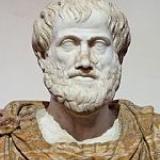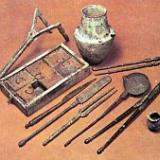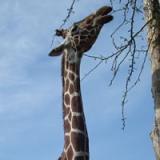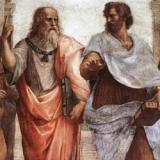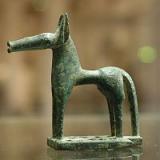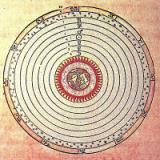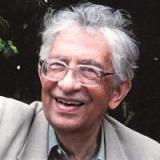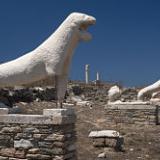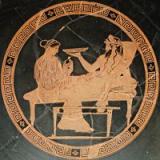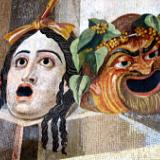Aristotle
Aristotle, the student of Plato and teacher of Alexander the Great, is the most influential philosopher in history. In these episodes Peter looks at his life and works, and then examines a range of topics in Aristotle's thought, ranging from zoology to literary theory. He also conducts interviews with Hugh Benson, Richard Sorabji, Raphael Woolf, and MM McCabe.
The book version of these podcasts is available from Oxford University Press.
Aristotle in translation
• Aristotle, The Complete Works, J. Barnes ed., 2 volumes (Princeton: 1984).
• A New Aristotle Reader, J. Ackrill ed. (Oxford: 1987).
General works on Aristotle
• J. Ackrill, Aristotle the Philosopher (London: 1981).
• J. Barnes (ed.), The Cambridge Companion to Aristotle (Cambridge: 1995).
• J. Barnes, Aristotle (Oxford: 1982).
• J. Lear, Aristotle, the Desire to Understand (Cambridge: 1988).
• G.E.R. Lloyd, Aristotle (Cambridge: 1968).
• The series edited by Barnes, Schofield, Sorabji: Essays on Aristotle, 4 vols. (1: Science; 2: Ethics and Politics; 3: Metaphysics; 4: Psychology and Aesthetics).
Posted on
In this first episode on the most influential philosopher of all time, Peter considers Aristotle’s life and works, and discusses how to go about reading him.
Posted on
Peter discusses Aristotle’s pioneering work in logic, and looks at related issues like the ten categories and the famous “sea battle” argument for determinism.
Posted on
Peter discusses Aristotle's Posterior Analytics, asking what demands we must meet in order to count as having knowledge. The bar turns out to be set surprisingly high.
Posted on
Hugh Benson of the University of Oklahoma chats to Peter about Aristotle's views on philosophical method, and whether he practices what he preaches.
Posted on
Aristotle rejects Plato's Forms, holding that ordinary things are primary substances. But what happens when we divide such substances into matter and form?
Posted on
Aristotle's Physics presents four types of cause: formal, material, final and efficient. Peter looks at all four, and asks whether evolutionary theory undermines final causes in nature.
Posted on
Before Isaac Newton (and Olivia Newton John), there was Aristotle. Peter looks at his Physics, focusing on the notions of actuality and potentiality and how they help to explain such concepts as time and motion.
Posted on
Peter talks to Sir Richard Sorabji about Aristotle's physics, focusing on the definition of time and the eternity of the universe.
Posted on
Peter tackles the De Anima (“On the Soul”), focusing on the definition of soul as the form of the body and Aristotle’s theory of sensation.
Posted on
Aristotle’s scientific outlook is perhaps best displayed in his zoology. Peter looks at his theories of inheritance, spontaneous generation, and the eternity of animal species.
Posted on
Peter looks at one of Aristotle’s most popular works, the Nicomachean Ethics, and its ideas about happiness and virtue.
Posted on
Peter continues to look at the Nicomachean Ethics, discussing Aristotle’s views about the role of pleasure and friendship in the good life.
Posted on
Peter chats with Dominic Scott of the University of Virginia, and talks about Aristotle's audience, method and conclusions in the Nicomachean Ethics.
Posted on
Drawing on the De Anima, On the Heavens, Physics and Metaphysics, Peter tackles Aristotle’s theory of mind and its relation to his theology.
Posted on
Peter looks at the ideal arrangement of the state in Aristotle’s Politics, his critique of Plato’s Republic and his views on slavery.
Posted on
A penultimate episode on Aristotle considers his discussion of persuasive speech in the Rhetoric and his account of ancient tragedy in the Poetics.
Posted on
Peter's colleagues MM McCabe and Raphael Woolf join him for a special 50th episode interview, to discuss Aristotle's reactions to his teacher Plato.
Posted on
Peter wraps up Plato and Aristotle by discussing their followers: Speusippus and Xenocrates (the “Old Academy”), and the polymath Theophrastus.




